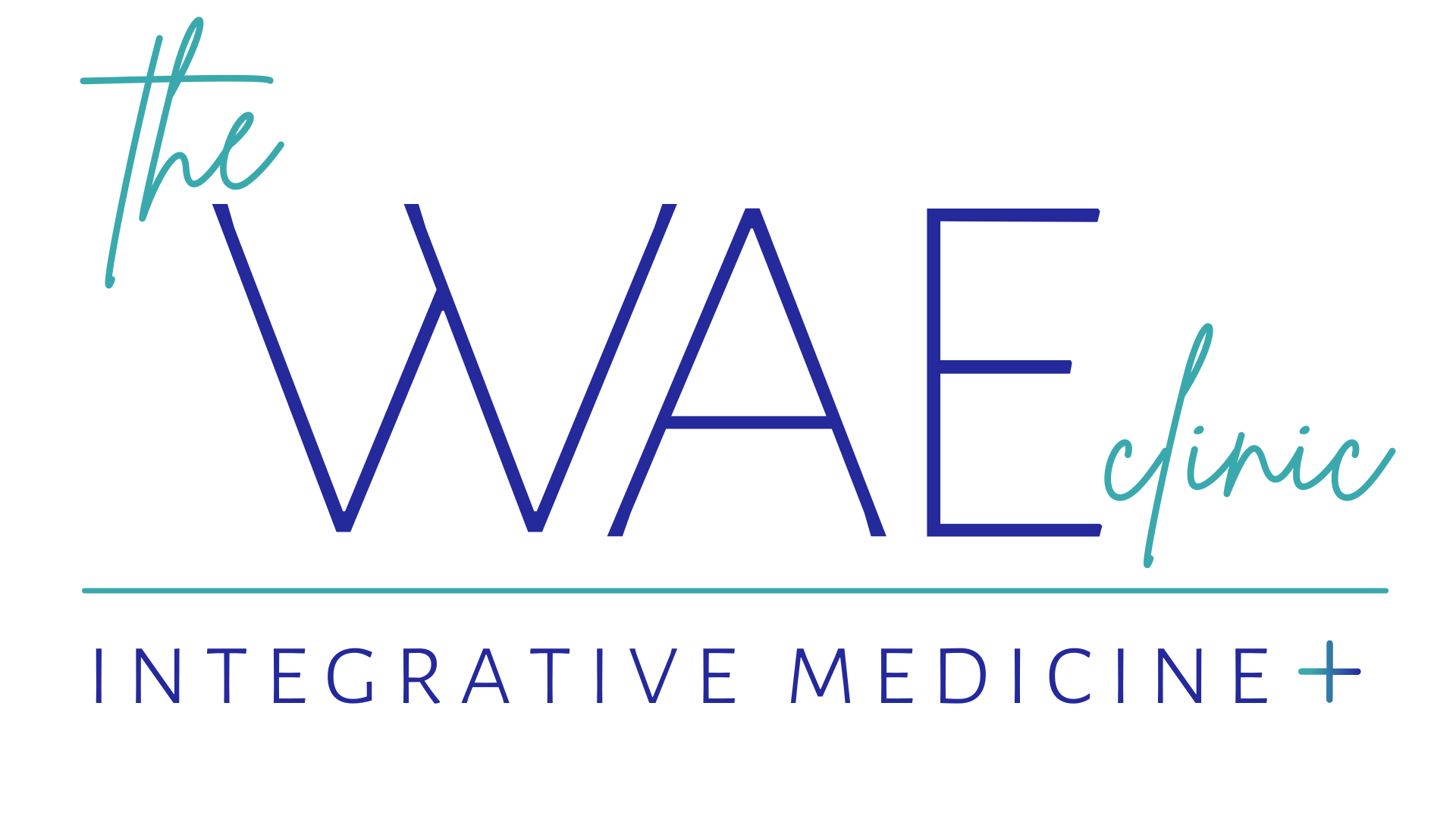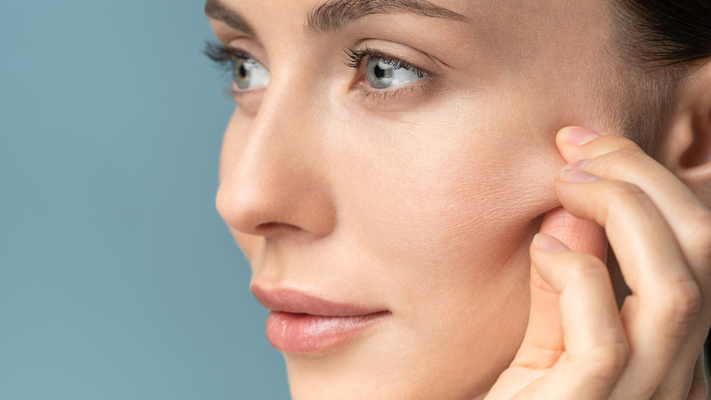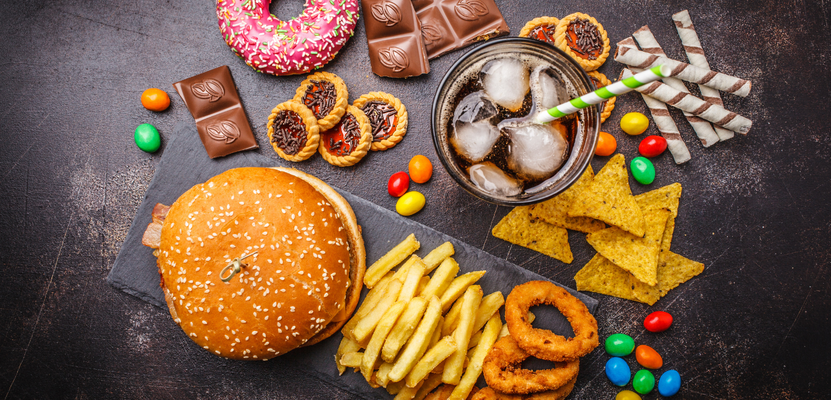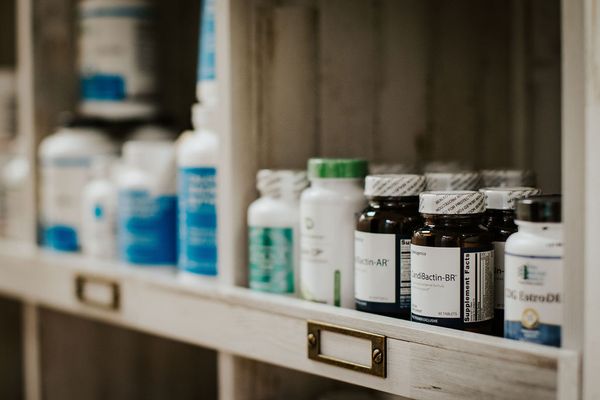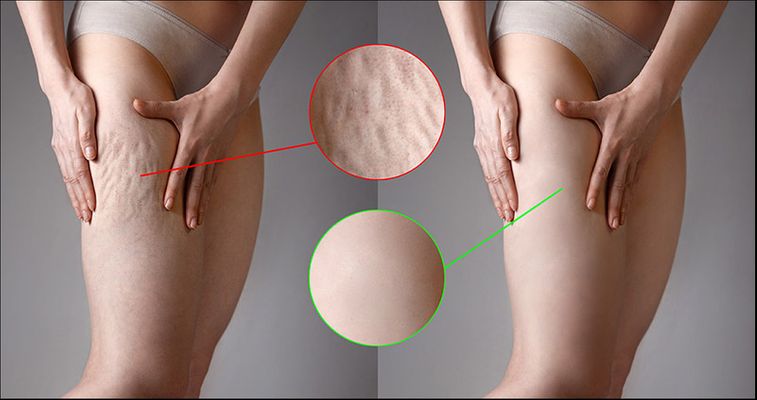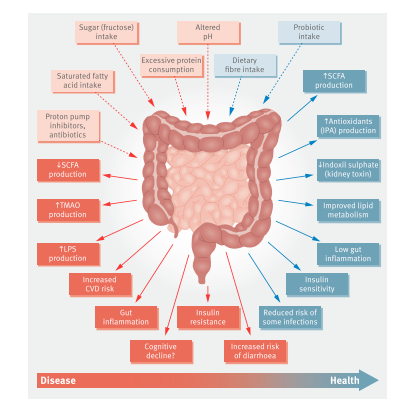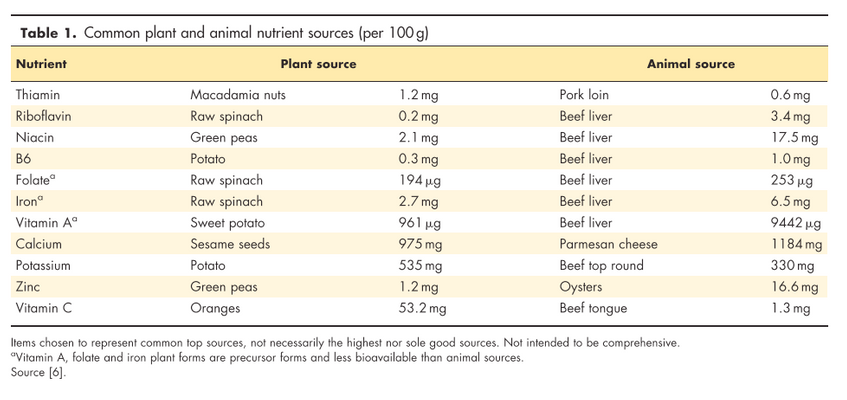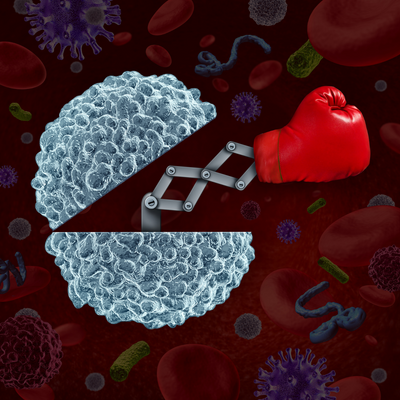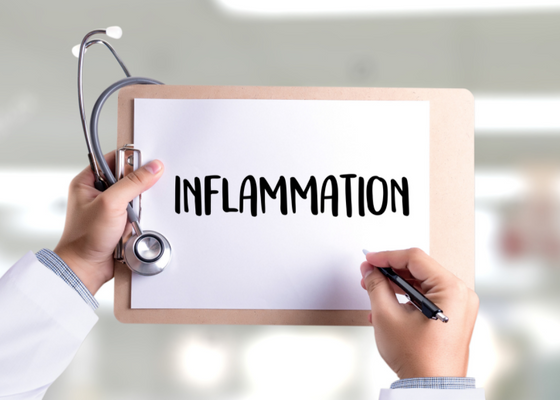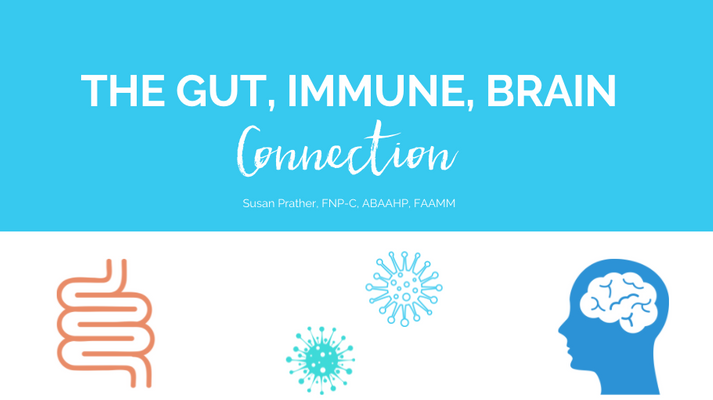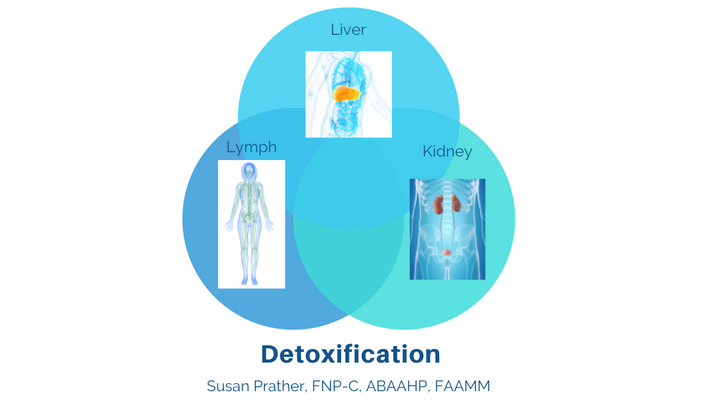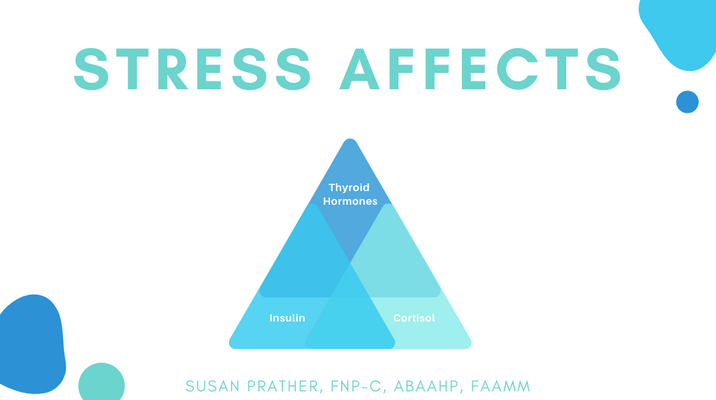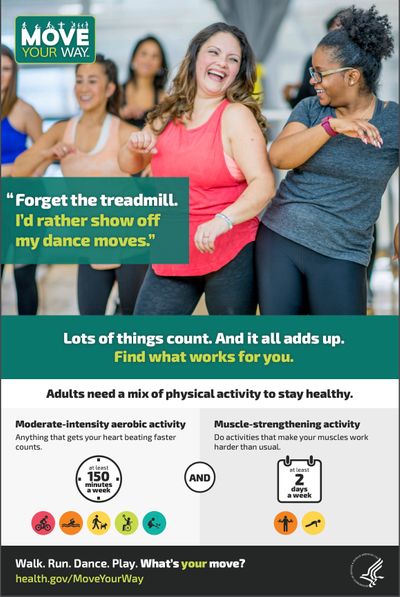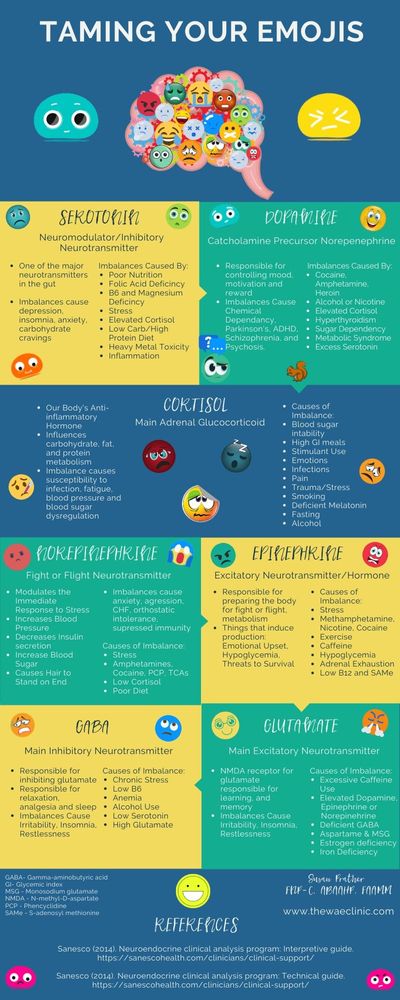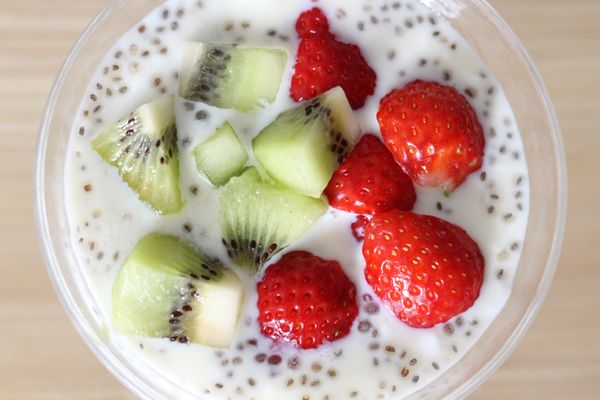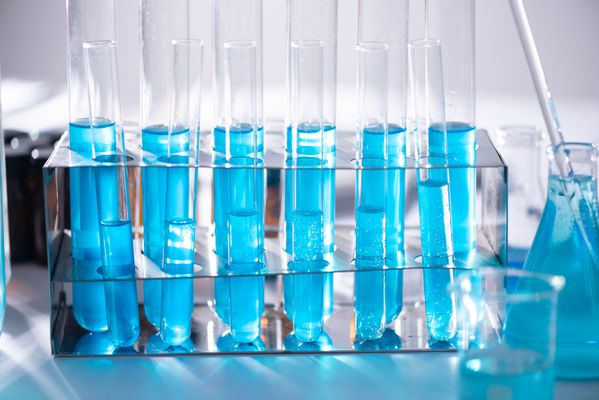Blog
Keep Up To Date With News, Tips, & Tricks.
Anti-Aging Facial Treatments: What You Need to Know (Especially About Neveskin Facials
Angela Herren-Wellness Coach
The Truth About Aging Skin—and What You Can Do Now
Aging is natural. But the toll it takes on your skin? That can be softened—if you know how. You may have started noticing subtle changes: your skin feels less firm, your jawline isn’t as defined, or perhaps fine lines are settling in more stubbornly than before. For many women (and men), these changes start becoming more noticeable after 40—and they're not just about time passing. They're about what’s happening beneath the surface.
Gravity doesn’t take a day off. And as collagen production slows down—particularly in women post-40 due to hormonal shifts—skin loses its elasticity and structure. Think of collagen as the scaffolding that holds your skin up. Once it starts breaking down, the effects show up in the mirror: sagging, fine lines, and a duller tone overall.
But there’s good news: facial technology has come a long way. And one name that’s leading the charge in non-invasive skin rejuvenation? Neveskin.
At our clinic, we’ve seen firsthand how Neveskin facial treatments can refresh, tighten, and even lift the skin—all without the downtime of surgery or the harshness of injectables. In this post, we’ll walk you through:
moreBreaking Free- How 9 toxic Emotions Impact Your Health
Angela Herren- Health and Wellness Coach
How 9 Toxic Emotions Impact Your Health
Are you on a quest for true, lasting health? Have you tried all the supplements, the diets, and detoxes—only to find yourself stuck in the same cycle? You’re not alone.
While nutrition and physical protocols matter, one of the most overlooked keys to health is emotional wellness. Toxic emotions like guilt, shame, anger, and anxiety aren’t just fleeting moods—they are stored energy that can build up in the body, creating dysfunction over time. Functional medicine teaches us that these internal “emotional toxins” are just as real and impactful as environmental toxins.
As Dr. Stephen Cabral and Karol K. Truman explain, healing is incomplete unless we address both the physical and emotional burden the body carries.
Signs and Symptoms
In my own health journey, I faced mast cell activation, early signs of Crohn’s, severe asthma, allergies, sinusitis, and Achalasia Type III. I was ready for something different then going from doctor to doctor. I was ready for a different approach. That's where functional medicine came in. I started learning how to eat right, think right, move right and take my supplements—each carefully chosen—but despite this effort, I knew something was missing and I knew my healing needed more. Why? Because like many of us, I had I buried emotions from a childhood shaped by abandonment and unspoken pain. I wore a smile, but beneath it was suppressed anger, fear, and sadness, that carried into my adult life.
moreBalancing Progesterone Naturally: What You Need to Know
Angela Herren- Wellness Coach
Signs and Symptoms of Progesterone Imbalance
Progesterone is a key hormone in reproductive and overall health, playing a crucial role in menstrual cycle regulation, pregnancy maintenance, and nervous system function. When progesterone is out of balance, it can manifest in a range of physical, emotional, and cognitive symptoms.
Low Progesterone Symptoms:
- Irregular or heavy menstrual cycles
- Shortened luteal phase (second half of the cycle)
- PMS symptoms, including mood swings and breast tenderness
- Anxiety and depression
- Sleep disturbances, particularly difficulty falling or staying asleep
- Increased risk of miscarriage or infertility
- Water retention and bloating
- Brain fog and poor concentration
High Progesterone Symptoms:
- Fatigue and sluggishness
- Dizziness or lightheadedness
- Increased bloating and digestive sluggishness
- Breast tenderness
- Mood fluctuations, including increased irritability
Root Causes of Progesterone Imbalance
Functional medicine seeks to uncover the root causes of hormonal imbalances rather than simply addressing symptoms. Here are the common drivers behind progesterone irregularities:
moreRewiring Your Brain for Love: How to Break Old Patterns and Respond Differently
Angela Herren- Wellness Coach
Do You Want More Love in Your Life?
How many of us want to experience more love? 💛 How many of us wish we could respond with love, even in difficult moments?
For me, having kids opened my eyes to this in a big way. I didn’t grow up in what I felt was a loving environment, so I knew I wanted to create something different for my family. But even with that intention, I struggled.
I tried so hard to react with love—telling myself that meant not yelling at my kids and husband. But no matter how much I tried, I found myself becoming exactly what I feared:
❌ I was the yeller—like my mom.
❌ I was angry—like my dad.
❌ I felt stuck in a cycle of defeat, constantly letting myself down.
Why Do We React the Way We Do?
Have you ever found yourself reacting in a way you don’t want to—yet you can’t seem to stop? Maybe it’s:
🔹 Snapping at your partner
🔹 Shutting down emotionally
🔹 Feeling frustration rise when things don’t go your way
The good news? You can change this. Your brain is designed to create and strengthen neural pathways based on your experiences and responses. That means you have the ability to rewire your brain—and with it, your reactions, patterns, and emotional habits.
moreOvercoming Barriers to Change: Why You Struggle to Take Action and How to Move Forward
Angela Herren-Wellness Coach
Making meaningful changes in life—especially when it comes to health and well-being—can feel like an uphill battle. You know what you should do, but somehow, following through consistently feels impossible. Sound familiar? You’re not alone.
The good news? The barriers that hold you back can be overcome. The even better news? You don’t have to do it alone.
Signs and Symptoms of Resistance to Change
If you’ve ever felt stuck or frustrated by your inability to follow through with your goals, you may be facing one (or more) of these common barriers:
✅ Fear of failure – Worrying you’ll fall short can keep you from even trying. This one will keep you in a stress-brain state. It will keep you living your life on cortisol instead of love.
✅ Lack of confidence – Doubting yourself makes change feel impossible.
✅ Comfort zone addiction – Even unhealthy routines can feel safer than stepping into the unknown.
✅ Overwhelm – When the journey feels too big, it’s hard to take the first step.
✅ Limited time or energy – Life is busy, and it’s easy to put yourself last.
moreWhy Am I Always Tired?
Angela Herren- Wellness Coach
Do you wake up exhausted, no matter how much sleep you get? Struggling with energy crashes throughout the day? Feeling tired all the time isn’t just a minor inconvenience—it’s your body’s way of signaling that something isn’t right.
Fatigue can stem from a variety of sources, and functional medicine aims to uncover and address the root causes rather than just masking the symptoms. If you constantly ask yourself, "Why am I always tired?" here’s how a functional medicine approach can help you find answers.
Common Causes of Chronic Fatigue in Functional Medicine
1. Hormonal Imbalances
Hormones like cortisol, thyroid hormones, and sex hormones play a critical role in energy production. Dysregulation of the adrenal glands (e.g., adrenal fatigue) or thyroid dysfunction (e.g., hypothyroidism) can leave you feeling drained.
💡 Functional Medicine Solution: Comprehensive hormone testing helps identify imbalances, enabling targeted interventions such as dietary adjustments, stress management, or natural supplementation.
2. Blood Sugar Dysregulation
Energy highs and lows often result from unsteady blood sugar levels. Skipping meals, consuming too much sugar, or relying on caffeine can lead to energy crashes.
moreHow To Balance Hormones?
Susan Prather, FNP-C, ABAAHP, FAAMM
Balancing Hormones Naturally with Functional Medicine
Hormonal imbalances can wreak havoc on your health, leading to symptoms like fatigue, mood swings, weight gain, and sleep disturbances. Functional medicine offers a holistic approach to restore balance by addressing the root causes of hormonal dysregulation. Here’s how you can take steps to harmonize your hormones using functional medicine principles.
1. Understand the Root Causes
Hormonal imbalances often stem from underlying issues such as:
Stress: Chronic stress can elevate cortisol levels, disrupting the balance of other hormones like estrogen, progesterone, and testosterone.
Poor Gut Health: The gut plays a key role in hormone metabolism. Imbalances in gut bacteria can interfere with hormone regulation.
Toxins: Environmental toxins in food, water, and personal care products can act as endocrine disruptors.
Nutritional Deficiencies: A lack of essential nutrients, such as magnesium, zinc, and B vitamins, can impair hormone production.
more
Why Your Weight Loss Program Didn't Work
Susan Prather, FNP-C, ABAAHP, FAAMM
Why Your Weight Loss Program Didn’t Work
It’s a frustrating reality: you’ve followed a weight loss program to the letter, yet the results were underwhelming, unsustainable, or nonexistent. Before you blame yourself or resign to the idea that weight loss isn’t achievable, let’s look deeper. Functional medicine offers insights that traditional approaches often overlook, helping to uncover the hidden factors that may have held you back.
1. Your Program Ignored Root Causes
Most conventional weight loss plans focus exclusively on calorie restriction and exercise. While these are components of a healthy lifestyle, they fail to address the underlying root causes of weight gain. Hormonal imbalances, gut health issues, chronic inflammation, and stress can all contribute to weight retention or difficulty losing weight. Without addressing these, even the most disciplined efforts might fall short.
Functional Medicine Insight: A personalized approach considers the whole person, identifying imbalances in systems like the thyroid, adrenal glands, and gut microbiome that could be affecting your metabolism.
moreWhy Am I Bloated?
Susan Prather, FNP-C, ABAAHP, FAAMM
Understanding the Causes and Solutions
The Problem:
Bloating is a common yet often frustrating experience that can disrupt daily life. While occasional bloating may be harmless, persistent or severe bloating could indicate deeper imbalances that require attention. From social discomfort to physical pain, bloating can affect your quality of life and leave you searching for answers.
What Is Bloating?
Bloating is the sensation of fullness, tightness, or swelling in the abdomen. It can make your stomach feel distended or hard and may be accompanied by other digestive symptoms like gas, burping, or cramping. Functional medicine views bloating not as an isolated symptom but as a sign of deeper digestive dysfunction or systemic imbalance.
Signs and Symptoms:
A feeling of tightness or pressure in the abdomen.
Visible abdominal distension.
Excessive gas (burping or flatulence).
Abdominal discomfort or pain.
Worsening symptoms after eating.
While these symptoms are common, they shouldn’t be ignored if persistent or severe.
Root Causes:
moreStep-by-Step Plan for Increasing Physical Activity
Susan Prather, FNP-C, ABAAHP, FAAMM
Step 1: Assess Current Activity Levels
• Activity Audit: Record your current level of physical activity for a week to understand your baseline.
• Identify Barriers: Note any barriers that prevent you from being more active, such as time constraints or lack of motivation.
Step 2: Set Realistic Goals
• SMART Goals: Set Specific, Measurable, Achievable, Relevant, and Time-bound goals for increasing activity.
• Gradual Increase: Plan to gradually increase your activity levels to avoid burnout or injury.
Step 3: Choose Enjoyable Activities
• Explore Options: Try different types of physical activities to find what you enjoy most, whether it's walking, cycling, swimming, dancing, or team sports.
• Vary Your Routine: Include a mix of cardiovascular, strength training, and flexibility exercises.
Step 4: Create a Structured Plan
• Weekly Schedule: Draft a weekly exercise plan. Allocate specific times for physical activity, making it as routine as eating or sleeping.
• Balance Activities: Ensure your routine includes a balance of aerobic, strength, and flexibility exercises.
moreStep-by-Step Plan for Limiting Alcohol and Caffeine
Susan Prather, FNP-C, ABAAHP, FAAMM
Step 1: Assess Current Consumption
• Track Intake: Keep a diary of your alcohol and caffeine consumption for at least a week to understand your current habits.
• Acknowledge Patterns: Note any patterns or triggers for consumption, like social events for alcohol or fatigue for caffeine.
Step 2: Set Realistic Reduction Goals
• Define Targets: Based on your assessment, set clear, achievable goals for reducing alcohol and caffeine intake.
• Gradual Reduction: Plan a gradual reduction to minimize withdrawal symptoms, especially for caffeine.
Step 3: Understand the Impacts
• Educate Yourself: Learn about the health effects of excessive alcohol and caffeine consumption, such as sleep disturbances, anxiety, and long-term health risks.
Step 4: Develop Alternatives
• Find Substitutes: Identify healthier alternatives, such as herbal tea instead of coffee or sparkling water instead of alcoholic beverages.
• Plan for Triggers: Have a strategy for situations where you typically consume alcohol or caffeine.
Step 5: Modify Your Environment
moreStep-by-Step Plan for Eliminating Processed Foods
Susan Prather, FNP-C, ABAAHP, FAAMM
Step 1: Understanding Processed Foods
• Educate Yourself: Learn about what constitutes processed foods – these are items that are packaged and altered from their original form, often with added sugars, preservatives, and artificial ingredients.
• Recognize Labels: Familiarize yourself with common ingredients in processed foods to identify them easily.
Step 2: Assess Current Diet
• Food Diary: Keep a record of your current eating habits for a week. Note down everything you eat and drink, focusing on identifying processed foods in your diet.
• Identify Processed Foods: Use your diary to pinpoint which processed foods you consume most frequently.
Step 3: Plan Your Meals
• Whole Foods-Based Meal Planning: Shift your meal planning to focus on whole, unprocessed foods like fruits, vegetables, lean meats, whole grains, and legumes.
• Prepare Shopping Lists: Create grocery lists that emphasize these whole food ingredients and avoid processed food aisles in the store.
Step 4: Gradual Reduction
• Slowly Phase Out Processed Foods: Gradually remove processed foods from your diet. For example, replace one processed meal a day with a whole food alternative.
moreStep-by-Step Plan for Improving Hydration
Susan Prather, FNP-C, ABAAHP, FAAMM
Step 1: Understand the Importance of Hydration
Learn About Hydration: Understand how hydration affects bodily functions including digestion, circulation, and temperature regulation.
Identify Signs of Dehydration: Recognize symptoms like fatigue, dry skin, headaches, and dark urine, which can indicate dehydration.
Step 2: Set Daily Hydration Goals
Calculate Needs: Generally, aim for about 8-10 glasses (2 liters) of water per day, but this can vary based on factors like climate, activity level, and health status.
Set Incremental Targets: If you're not used to drinking a lot of water, gradually increase your intake over a few weeks.
Step 3: Develop a Daily Drinking Schedule
Morning Routine: Start your day with a glass of water to kickstart hydration.
Regular Intervals: Plan to drink water at regular intervals, such as every hour or two.
Mealtime Hydration: Include a glass of water with each meal.
Evening Wind-Down: Have a glass of water in the evening, but limit intake right before bed to avoid disrupting sleep.
Step 4: Optimize Water Intake
moreStep-by-Step Plan for Adopting a Whole Foods Diet
Susan Prather, FNP-C, ABAAHP, FAAMM
Step 1: Understanding Whole Foods
Definition: Learn that whole foods are minimally processed and free from artificial substances.
Examples: Familiarize yourself with examples of whole foods, such as fresh fruits and vegetables, whole grains, lean proteins, nuts, and seeds.
Step 2: Planning Your Diet
Assess Current Eating Habits: Keep a food diary for a week to understand your current eating patterns.
Set Realistic Goals: Start with manageable goals, like including a serving of vegetables in every meal.
Meal Planning: Plan your meals weekly, focusing on whole foods as the primary ingredients.
Step 3: Grocery Shopping
Make a List: Create a shopping list based on your meal plan.
Shop the Perimeter: Most whole foods are located around the perimeter of the store (produce, meat, dairy).
Read Labels: Choose items with minimal and recognizable ingredients.
Buy Fresh and Organic When Possible: Prioritize organic produce, especially for items known to have higher pesticide residues.
Step 4: Preparing Your Kitchen
Clear Processed Foods: Remove highly processed foods from your pantry and fridge.
moreWellness Plan For The New Year
Susan Prather
Nutritional Changes
Whole Foods Diet: Focus on a diet rich in whole foods, including fruits, vegetables, lean proteins, whole grains, and healthy fats.
Hydration: Aim for at least 8-10 glasses of water per day.
Eliminate Processed Foods: Avoid processed meats, refined sugars, and high-sodium snacks.
Limit Alcohol and Caffeine: Reduce intake to moderate levels or eliminate if necessary.
Anti-Inflammatory Foods: Incorporate foods that reduce inflammation, such as turmeric, ginger, berries, and leafy greens.
Food Diary: Maintain a food diary to monitor dietary habits and identify potential food triggers for symptoms.
Physical Activity
Moderate Exercise: Engage in at least 150 minutes of moderate aerobic exercise per week.
Strength Training: Include strength training exercises at least two days per week.
Flexibility and Balance: Incorporate yoga or stretching routines to improve flexibility and balance.
Activity Log: Keep an activity log to track exercise routines and progress.
Stress Management
Mindfulness Meditation: Practice mindfulness meditation for 10-15 minutes daily.
more5 Subtle Signs of Poor Metabolic Health
Maintaining optimal metabolic health is essential to lowering your risk for a number of serious conditions, including heart disease, diabetes, stroke, and Alzheimer’s disease–all of which are among the top 10 leading causes of death in the United States. But recognizing when your metabolic health is in jeopardy can be tricky. The most concerning symptoms, such as insulin resistance (and elevated blood sugar levels), high blood pressure, and low HDL (“good”) cholesterol levels, typically emerge after metabolic dysfunction is already underway and are often only surface on blood tests at the annual physical.
However, other signs can potentially signal poor metabolic function earlier, when you have more ability to affect the underlying cause and prevent further decline. While none of these symptoms is a sure sign of metabolic issues, being mindful of how many and how frequently they occur can help you know when to seek more information, like getting bloodwork or speaking to your doctor. Read on to learn about five surprising, subtle, and seemingly everyday hallmarks of worsening metabolic health–and the steps you can take to avoid more critical health problems later.
Metabolic dysfunction can take many forms and creep up slowly. Here are some symptoms to watch for, and ways to maintain optimal metabolic health:
moreA Cellulite Treatment That Works
Looking for a non-invasive way to get rid of cellulite and finally be able to wear those shorts you bought years ago? With so many creams and products available online, it's hard to know what's best and really works. EPAT sound wave technology is a FDA approved device that uses high-frequency impulse pressure waves to reduce inflammation and increase the blood flow to stubborn areas of cellulite. This method helps improve shape, smooth the skin, and reduce the appearance of cellulite. EPAT is painless, requires zero down time, and results can be seen after only three weeks, sometimes immediately after the first treatment. You can learn more HERE.
Click here to schedule your consult for EPAT Cellulite Treatment!
moreHormone Replacement Therapy
Susan Prather, FNP-C, ABAAHP, FAAMM
Bioidentical hormones do not contain any additional structural substituents that can modify their binding and function. Instead, they are molecularly identical to endogenously produced hormones (Ruiz et al., 2011). These hormones include estrone (El), estradiol (E2), estriol (E3), progesterone (P4), and testosterone. Variations in the actions, risks, and advantages of hormones rely on several factors, including administration, absorption, bioavailability, metabolism, receptor affinity, the specificity of receptors, and molecular structure (Moskowitz, 2006). Bioidentical Hormone Replacement Therapy (BHRT) can be available commercially or be compounded, creating much controversy over the safety of BHRT preparations. State pharmacy boards govern the production of compounded BHRT (CBHRT). CBHRT is similar to manufactured drugs prescribed for off-label use, which constitutes around a fifth of all prescriptions (IACP, n.d). Commercially available, FDA approved BHRT preparations are different from CBHRT preparations in that they are closely regulated by the federal government, developed according to strict federal guidelines, and their outcomes are subject to medical scrutiny. The beneficial effects of various doses of FDA-approved estrogen products on vasomotor symptoms, hot flashes, bone density, urogenital atrophy, and fracture prevention have been reported in multiple peer-reviewed publications. However, CBHRT lacks the same level of evidence to date (Files, Ko, & Pruthi, 2011).
moreTypes of Carbohydrates to Avoid
Types of carbohydrates to avoid:
There are two kinds of carbohydrates, simple and complex. As these carbohydrates break down, blood glucose rises, and insulin is released. Insulin stimulates the cells to uptake glucose for storage in muscle and fat. The rate at which glucose is absorbed is vital in controlling blood glucose levels and insulin release. The effect that a carbohydrate has on the blood glucose levels is called a glycemic response. Another way to classify carbohydrates is as high and low glycemic index (GI) carbohydrates. High GI carbs are rapidly absorbed, causing a fast insulin spike. While low GI foods are slowly absorbed over time, reducing the chance of a large insulin spike. Lower GI foods result in a lower blood glucose level and a more gradual blood glucose fall. The glycemic load (GL) is the GI of a food multiplied by the grams of carbohydrates, and it is also an important consideration. In order to maintain a steady glucose level and prevent insulin resistance, a diet low in GI and GL is prudent (Gropper, Smith, & Carr, 2018).
What percent of the diet should come from carbohydrate, fat, and protein and why?
Current RDA are as follows for a female age 55:
moreWhat Tests Should I Have Done To Check My Thyroid Health?
Susan Prather, FNP-C, ABAAHP, FAAMM
You have probably had your thyroid tested before and been told your thyroid was "normal". Let me let you in on a little known secret. Most providers only test a TSH. This is a great test but is not the whole picture of your thyroid health. It is important to look at all of your thyroid markers such as free t4, free t3, tpo, and tg antibodies as well.
Many things can cause thyroid abnormalities such as iodine or selenium deficiencies. You can also have thyroid issues, such as Hashimoto's Thyroiditis, that stem from the foods you are eating!
Most conventional providers only look at a normal reference range when looking at a TSH level. The reality is that you can begin having symptoms of hypothyroidism with TSH levels above 2.5. That means you could have been told you had a normal thyroid level and still have had a subclinical hypothyroidism.
If you are feeling symptoms that you can not explain such as weight gain and fatigue, you need a complete thyroid evaluation.
*These statements are not meant to diagnose or treat. You should consult your health care provider before starting any new diet, exercise, or supplement.
Schedule your thyroid profile today!
moreAre Gluten Free Diets Worth It?
Susan Prather, FNP-C, ABAAHP, FAAMM
In recent years, gluten-free diets (GFD) have gained growing popularity and recognition. A GFD has historically been predominantly prescribed for celiac disease (CD) and dermatitis herpetiformis (DH) treatment (Silvester et al., 2016a). While the only known effective treatment for CD is the GFD, many believe it to be more healthy and say it has favorable effects on health problems other than CD (Lerner, Green, & Lebwohl, 2019). Not only has CD awareness and diagnosis improved, but certain people are now choosing a GFD with other aims in mind, such as weight loss, a healthier lifestyle, irritable bowel syndrome (IBS), or autism management. The ability to sustain a GFD is highly dependent on various environmental and individual variables. Individuals who maintain a GFD face difficulties by constantly engaging others to ensure their food is gluten-free (GF), either risking eating gluten or risking social exclusion. When they make an unseen illness visible, frequent discussions and special requests may be stigmatizing. Strict dietary requirements restrict spontaneity and can be interpreted as a hospitality rejection or imposition. Impairment in social recreation activities, greater attention to diet and food planning, a change to consuming more meals at home, and occasional negative emotions such as anxiety, loneliness, and frustration are correlated with a GFD (Silvester et al., 2016a).
moreFood Plans
Check out all the available food plans we offer!
The flood plans below are not diet plans but carefully crafted food guides. Some have taken years to develop and each guide had a team of health care and medical specialist that worked on it ranging from PhD nutritionists to MDs, integrative cardiologists and lipidologists. These are medical food plans. All of these plans were crafted by the Institute for Functional Medicine. They are only available to our patients. They are not available for download here.
Each one is specific for a particular disease entity or underlying pathological process. Please be sure to consult with your personal health care specialists prior to beginning any food plan.
Each food guide contains a master plan that explains the uses of the particular plan, a 7-day recipe planner and a food list that outlines the entire plan in one page that you can use to help you shop at the grocery store.
moreRecipes and Tips For A Guilt-Free Thanksgiving Meal
Morgan Chism
There's just something about the last two months of the year that always leads to me throwing my health goals down the drain. The thick scent of turkey and sweet potato pie wafting through the air making my taste buds water combined with the deep down joy that comes from gathering around a table with my family and eating so much dressing that I have to loosen my belt buckle is not only a recipe for disaster, but something I look forward to all year long! However, this year I made a vow to myself that I will not ruin a year's worth of progress in a matter days.
But, I don't care what I vow, I'm not missing out on that Thanksgiving meal! So, with the goal of staying healthy while still enjoying my meal, I put Megan, our Certified Health Coach, to work on finding healthier recipe options for our traditional Thanksgiving menu - and she did not disappoint! You can find her recipes and tips below if you'd like to try out these healthier options! Let us know what you think.
moreStaying Fit During the Holidays
Megan Knighton, IHP Level I
Let's finish the year out strong. There are ways to help you be successful while enjoying the holidays. Health, Fitness and Nutrition are not just about looking good, its about feeling good too! When you work out and eat healthy, you will feel better. Here are a few tips to make it easier for you through those travel and family plans this holiday season.
moreHow You Can Fight Back Against COVID 19
Susan Prather, FNP-C, ABAAHP, FAAMM
Stats:
- Scientists predict COVID-19 will infect 40 to 70% of our population — that's more than 150 million Americans. Today, 80% have mild or no effects, 20% require hospitalization, and 5% need intensive care. Mortality rates differ depending on the population but in elderly patients with chronic disease, rates range from 0.6 percent to up to 15 percent.
- About 12 percent of Americans are metabolically stable. 75% of us are overweight, 42% are obese and one in two Americans has diabetes or pre-diabetes.
- Many with chronic diseases (diabetes, heart disease, cancer, etc.)—which affect 6 out of 10 Americans — are at the greatest risk, with 5 to 10-fold mortality rates over healthy COVID-19 patients.
- The chance of mortality is about three times greater for obesity. In up to 40% of the hospitalizations in 20 to 54-year olds, patients are obese and overweight
- As many as 25% of people may be infected with no symptoms.
The virus is thought to spread mainly from person-to-person.
- Between people who are in close contact with one another (within about 6 feet).
- Through respiratory droplets produced when an infected person coughs or sneezes.
- These droplets can land in the mouths or noses of people who are nearby or possibly be inhaled into the lungs.
Health Claims- Is It Really Heart Healthy?
Susan Prather, FNP-C, ABAAHP, FAAMM
Although shoppers obtain information on health and nutrition from various outlets, approximately half of American shoppers use food labels, which serve as a primary medium for delivering nutrition information. Qualified health claims provide consumers with a valuable opportunity to learn about new or evolving relationships between diet and disease and develop an awareness of the health benefits of common foods to improve their buying and consumption habits. However, suppose shoppers are unable to differentiate between the claims properly. In that case, they could not make adequately informed decisions regarding the possibility that a food will have the health advantage claimed (Berhaupt-Glickstein & Hallman, 2017).
Health-related claims are statements about a food's nutritional quality (nutrition claims) or suggest a correlation between a food and a health result (health claims). Health-related claims have a considerable influence on eating choices. Current research shows that items with a health-related claim are 75% more likely to be selected than an equivalent product without a health-related claim (Kaur, Scarborough, & Rayner, 2017).
Health claims, nutrition content claims, and structure and function claims are the three types of claims that can legally be used on food and nutritional supplement labeling in the United States. Health claims are founded on a very high level of scientific evidence. A topic of considerable debate has been the issue of what constitutes significant scientific consensus. The FDA outlines a framework for evaluating the strength and accuracy of scientific evidence leading to significant scientific consensus. Without exception, the "gold standard" for health claim certification is randomized, controlled clinical intervention trials. However, the number of randomized, controlled clinical intervention trials required for a health claim to have significant scientific consensus is unclear. Significant scientific consensus claims are often permitted based on statements issued by certain governmental authorities. The FDA developed a rating scale for qualified health claims from moderate/good, 'B' level, to extremely bad, 'D' level, representing the relative strength of the empirical evidence supporting the proposed claim. Authorized health claims are 'A' level claims that satisfy the requirement of significant scientific consensus (Hasler, 2008).
moreDietary Supplements: Which Products Are Safer?
Supplements, although they have some regulation by the FDA, FTC, and USDA, not all supplements or companies are created equally. We recommend choosing supplements with secondary certifications such as NSF or USP that have stricter guidelines and safety profiles. We typically only use professional brand companies to avoid getting low-quality supplements. We caution you about potential false claims made by supplement companies not supported by peer-reviewed double-blind studies. However, if there is clear evidence to support its use in a certain disease process, we will share the current research with our patients.
The National Sanitation Foundation (NSF)
The National Sanitation Foundation (NSF) works to develop public health standards and certification programs that help protect the world’s food, water, consumer products and environment. They offer independent third-party certification programs for many consumer products, including nutritional supplements and personal care products, to ensure that manufacturing and finished products comply with all standard requirements.
Product Certification
moreA Pathogen's Iron Will
Iron is required for oxygen transport, the synthesis of ATP (adenosine triphosphate), mitochondrial activity, DNA replication, and other metabolic processes. Our innate immune response requires carefully coordinated regulation over iron metabolism to restrict its supply during periods of infection since both hosts and pathogens demand iron. Since the functions of essential iron-requiring enzymes that battle infection are disrupted in individuals with nutritional iron deficiency, the host's immune system can be seriously compromised (e.g., myeloperoxidase, inducible nitric oxide synthase). Iron is often used as a cofactor for ribonucleotide reductase, a crucial enzyme in nucleic acid synthesis required for lymphocyte proliferation to mount an immune response against invading pathogens.1 In chronic inflammatory syndromes, iron availability can play a non-redundant role. Iron-chelating molecules may play a key role in this process, as it may inhibit or enhance immune cells' inflammatory capacity.2
Pathogenic microorganisms depend on their ability to re-direct host Fe via their own metabolic pathways to live and proliferate once confined to the microenvironment of an infected host. This is done by the expression of siderophores, which are microbially encoded high-affinity Fe-binding molecules. These are linked to various microbial receptors that absorb Fe-siderophore compounds and allow for Fe acquisition by the bacteria. This microbial Fe acquisition strategy is countered by hypoferremia, a host protection mechanism that reduces Fe concentration in plasma. The secretion of hepcidin, an acute-phase 25-amino-acid peptide encoded by the HAMP gene, is central to this resistance mechanism. Hepcidin binds to ferroportin and causes it to degrade, suppressing cellular Fe efflux systemically. Lactoferrin, a part of the transferrin family of Fe binding proteins, is another process by which innate immune responses inhibit extracellular pathogens from acquiring Fe. This glycoprotein, which is secreted at mucosal surfaces by macrophages and polymorphonuclear cells (PMN), attaches Fe3+ with strong affinity, limiting the virulence of a number of extracellular pathogens. The general strategy for restricting Fe supply to intracellular pathogens is to minimize intracellular Fe2+ concentration through inhibiting extracellular Fe uptake, promoting Fe3+ storage in ferritin, or increasing cellular Fe2+ efflux by pathways such as i) inhibiting extracellular Fe uptake, ii) supporting Fe3+ storage in ferritin, or iii) enhancing cellular Fe2+ efflux.3
moreA Little Sun Is Good For Your Bones!
Exposure to sunlight or ultraviolet-B radiation (UVB) can provide a person their entire daily requirement of vitamin d because it stimulates the production of vitamin D3 (Linus Pauling Institute). Exposing the body in a bathing suit to sunlight to a point that causes pink skin is called 1 minimal erythemal dose (MED) and can produce 10,000 to 25,000 iu of vitamin d. For a daily dose of vitamin d of 600 to 1000 iu, only 6% of the body needs to be exposed to 1 MED. Adequate vitamin d requirements can be met with 1 MED of sun exposure to exposed skin three times a week. However in order to treat vitamin d deficiencies, it is best to use large pharmacologic doses for short periods of time (Holick, 2002). Research shows that vitamin D3 is more bio-available than vitamin D2 in large bolus doses. There is no difference in bio-availability when given daily (Linus Pauling Institute).
Other interesting facts about vitamin d:
- The ability to synthesize vitamin d3 in a light-skinned person, is 5-10 fold more efficient than in a dark-skinned individual (Chen, et al., 2007).
- Vitamin d is a hormone, not a vitamin (Holick, 2002).
- Only a few foods naturally contain vitamin d, such as salmon (Holick, 2002).
- Vitamin D is removed more efficiently from circulation in people with high body fat content (Holick, 2002).
Food and Drug Interactions
Which foods have the greatest potential to interfere with the therapeutic effect of coumadin, statins, and diuretics?
Grapefruit, citrus fruits, mixed greens, tuna have the most potential to interfere with coumadin due to high vitamin k content. Grapefruit has the highest potential to interfere with the metabolism of statins by downregulating CYP3A4. Foods high in potassium can cause elevated potassium with potassium-sparing diuretics. If taking loop diuretics, you will need to increase your potassium, chloride, thiamin, zinc, and magnesium intake as these cause urinary losses in these nutrients (Gropper, Smith, & Carr, 2018).
Find the Food Ranking Tool Here To See Micro and Macro Nutrients in Each Food
Vitamin K Containing Food List
moreAre Reese's Peanut Butter Cups Actually Healthy?
Susan Prather, FNP-C, ABAAHP, FAAMM
I often have patients that I place on a whole foods clean gluten-free (GF) diet ask, "so I can eat Reese's because they are gluten-free?". My response is usually, "Well, you can eat Reese's because they are gluten-free, but should you?". If your goal is to eat a whole foods clean diet that is also GF, you need to evaluate a Reese's nutritional value or even an alternative peanut butter cup, like Justin's. The GF claim on Reese's peanut butter cups is not certified but is valid because they do not contain gluten above 20 parts per million of gluten (The Hersey Company, n.d.). Justin's peanut butter cups are certified GF, Non-GMO, and Organic. However, neither is a nutritious choice when attempting a whole food clean eating diet. Two Reese's cups include 20 grams of sugar, and 19 grams is added (Smart Label, n.d.)! Justin's milk chocolate peanut butter cups contain 16 grams of sugar, all of which is added. These do contain Non-GMO organic ingredients as follows: organic milk chocolate (organic evaporated cane sugar, organic cacao beans, organic full cream milk, organic cocoa butter, organic soya lecithin [emulsifier]), organic peanut butter (organic ground peanuts), organic cane sugar, organic peanut flour, organic palm oil, sea salt, organic sunflower lecithin, making them a better choice than Reese's due to no genetic modification of the food and the decrease in pesticides and hormones, but not a "healthy" choice (Justin's, n.d.b). If you are thinking, "Well, I will just choose the dark chocolate version of Justin's", think again. It contains the exact amount of sugar, 16 grams (Justin's, n.d.a)!
moreBooks we recommend!
Susan Prather, FNP-C, ABAAHP, FAAMM
Nutrient Synergy and Osteoporosis
Magnesium and Vitamin D Are Synergistic
Magnesium and Vitamin D work synergistically in the body. Magnesium is a cofactor for synthesis, distribution, and stimulation of vitamin D. Studies show that the activities of 3 major enzymes regulating 25(OH)D concentrations are magnesium dependant. These include 25-hydroxylase, 1a-hydroxylase, and 24-hydroxylase and vitamin D binding protein (VDBP). Deficiency of magnesium results in a decrease of 1,25- dihydroxyvitamin D[1,25(OH)2D] (Rosanoff, Dai, & Shapses, 2016). Vitamin D,1,25(OH)2, the active metabolite of vitamin D, enhanced intestinal absorption of magnesium. The 1,25(OH)2 D-dependent calcium-binding proteins, Calbindin-D 9 K and Calbindin-D 28 K, are located in the kidney's distal tubule where a large portion of calcium and magnesium is reabsorbed. Calbindin-D 9 K has a significantly higher affinity for magnesium, suggesting these binding proteins are essential in regulating magnesium homeostasis (Farhanghi, Mahboob, & Ostadrahimi, 2009). I find that many of my patients exposed to adequate sunlight are still deficient in vitamin D. Magnesium deficiency may be the cause of this issue.
Farhanghi, M. A., Mahboob, S., & Ostadrahimi, A. (2009). Obesity induced Magnesium deficiency can be treated by vitamin D supplementation. Journal of the Pakistan Medical Association, 59(4), 258–261.
moreStimulants and Alcohol Interactions
The Substance Abuse and Mental Health Services Administration (SAMHSA) (2015), reports that an estimated 1.7 million people over the age of 11, or 0.6 percent of this population, were stimulant misusers in 2015. There were an estimated 138.3 million alcohol users in the same population. Of the population of people aged 12 and older, 15.7 million had alcohol use disorder, and 426,000 had stimulant use disorder in 2015 (Park-lee et al., 2015).
According to United Nations Office on Drugs and Crime (UNDOC) (2017), drugs categorized as central nervous system stimulants increase the activity of monoamine neurotransmitters (dopamine, noradrenaline, and serotonin) in the central nervous system. These sympathomimetic agents stimulate the release of catecholamines from the presynaptic nerve terminals, particularly dopamine and norepinephrine (Jiao et al., 2009). Stimulants also enhance the functioning of the noradrenergic system resulting in an increase in heart rate and alertness (United Nations Office on Drugs and Crime, 2017).
In comparison, alcohol is a depressant in the central nervous system, with potent effects on the inhibitory neurotransmitter gamma-aminobutyric acid (GABA) and the stimulating neurotransmitter N-methyl-D-aspartate (NMDA). Alcohol induces dopamine production, suppresses the activity of NMDA, and increases the activity of the GABA and glycline (Marr, 1999).
moreWhat Are Electrolytes?
Electrolytes are chemicals in body fluids that form electrically charged particles (ions). The electrical energy needed for many bodily functions is transported by these ions. Electrolytes help regulate the body's fluid equilibrium.
- sodium
- chloride
- potassium
- magnesium
- calcium
- phosphate
- bicarbonate
Healthline. (n.d.). Electrolytes Food: 25 Foods for Electrolyte Function and More. Retrieved October 4, 2020, from https://www.healthline.com/health/fitness-nutrition/electrolytes-food#what-are-electrolytes
Food Sources of Electrolytes:
Sodium - dill pickles, tomato juices, sauces, and soups, table salt
Chloride - tomato juices, sauces, and soups, lettuce, olives, table salt
Potassium - potatoes with skin, plain yogurt, banana
Magnesium - halibut, pumpkin seeds, spinach
moreChromium & Blood Sugar
Does chromium and help diabetes?
Hexavalent chromium is considered a carcinogen. However, trivalent chromium is nontoxic to humans. There is, however, some concern about the safety of chromium picolinate and possible renal failure (Higdon, 2001.). It is important to choose a quality professional brand and an appropriate chromium form before starting. Current research indicates that chromium intake is associated with a clinically significant reduction in fasting blood glucose, A1c, triglycerides, and HDL-C levels (Huang et al., 2018). Therefore supplementing with a quality chromium supplement and monitoring chromium levels would be a potential adjunctive therapy for her. However, chromium will improve insulin sensitivity, which could cause hypoglycemia. Close blood glucose monitoring is essential during supplementation.
Higdon, J. (2001). Chromium. Linus Pauling Institute. Retrieved October 10, 2020, from https://lpi.oregonstate.edu/mic/minerals/chromium#toxicity
Huang, H., Chen, G., Dong, Y., Zhu, Y., & Chen, H. (2018). Chromium supplementation for adjuvant treatment of type 2 diabetes mellitus: Results from a pooled analysis. Molecular Nutrition and Food Research, 62(1), 1–19. https://doi.org/10.1002/mnfr.201700438
moreB12, Folic Acid, & MTHFR
How does a vitamin deficiency contribute to pernicious anemia or a confused state?
Pernicious anemia is an autoimmune disease that impairs dietary cobalamin absorption resulting in a deficiency of B12. This impaired absorption is due to the autoimmune destruction of the gastric parietal cells that produce intrinsic factor (Green & Datta Mitra, 2017). Vitamin B12 is vital for blood cell development and nerve myelination (Mohamed et al., 2020). Deficiency of vitamin B12 can cause neurological damage due to impaired development of succinyl coenzyme A which is essential for forming myelin sheaths (Lenti et al., 2020). Neuronal demyelination and associated degeneration result in neurological and neuropsychiatric symptoms (Mohamed et al., 2020).
What other vitamins and nutrients should a patient on diuretics include in the diet?
Diuretics can contribute to magnesium, calcium, thiamine, potassium, zinc, and folic acid deficiency. These would need to be evaluated and supplemented if necessary (Natural Medicines, n.d.). A synergistic relationship exists between vitamin B12 and folate, and folic acid deficiency often coexists with B12 deficiency (Gropper, Smith, & Carr, 2018).
moreIs The Microbiome The Future Of Personalized Medicine?
Susan Prather, FNP-C, ABAAHP, FAAMM
The gastrointestinal microbiota has been implicated in modulating human well-being and metabolism and is associated with chronic nutrition-related diseases such as obesity and diabetes. It has also been found to affect systemic functions such as immunity and cognitive abilities. The gut microbiota can impact health via the development of metabolites, such as short-chain fatty acids (SCFAs), that can affect a wide variety of host systems and metabolic pathways. The gut microbiota reacts to environmental stimuli rather than being a fixed characteristic. The effects of lifestyle factors, such as diet and exercise, on the gut microbiota have been the focus of much microbiome research. Variation in the gut microbiome's makeup and function has driven study on the relationship between aspects of the gut microbiota, such as diversity or the existence, absence, or quantity of certain taxa, and host well-being. In order to personalize dietary recommendations and avoid diet-related chronic diseases, precision nutrition research is also exploring how to anticipate individual variations in glycemic response, triglycerides, cholesterol levels, and other health indicators (Hughes, 2020).
In humans, the gut microbiota develops across the life span and plays a vital role in health and disease. The gut microbiota has various beneficial functions in wellness, including energy recovery from the metabolism of non-digestible food, defense against pathogens, and immune system modulation. A dysbiotic gut microbiota has a role in pathological disorders, such as obesity, diabetes, and atopy, irritable bowel syndrome, and inflammatory bowel disease (Jovel et al., 2018).
morePrevention is Key
Gloria Brister
Top 3 Causes of Death
- Heart Disease
- Cancer
- Stroke
Prevention is Key
- Reduce cholesterol
- Reduce blood pressure
- Tobacco increases risk with all diseases
- Wellness- is becoming aware of making better lifestyle choices
-Physical
-Social
-Intellectual
-Emotional
-Spiritual
- Increase awareness-read, TV, Facebook, Instagram
- Support for healthy behaviors- Places to exercise, Walk app, gym
- Supportive relationships-Buddy system, family, friends, co-workers
- Contemplation-when we see other’s suffer from consequences of unhealthy lifestyle
- Commitment to change
- Rewards- A trip? New clothes?
- Substitute negative behavior for a negative one
- What could be some of your motivators to change? Improving self image or reducing stress.
- Preparation to take action! Record your own behavior, create journals, record activity level, and take time to analyze it.
- Set goals that are realistic, quantitative, believe in yourself
- Create a plan for food & exercise
- Make a personal contract with yourself-goals, benefits, strategies for change
Pharmacogenomics
Following the discovery of the human epidermal growth factor receptor-2 protein (HER-2/neu), Herceptin was created as a genetically engineered humanized monoclonal antibody. The identification that the human epidermal growth factor receptor-2 (HER-2) protein on the surface of breast cancer cells is overexpressed in 25-30 percent of patients contributed to the synthesis of a therapeutic antibody to target HER-2.1
Herceptin is approved for the treatment of early-stage breast cancer that is HER2-positive (HER2+) that has spread to the lymph nodes, as well as HER2-positive breast cancer that has not progressed to the lymph nodes. The cancer must be estrogen receptor/progesterone receptor (ER/PR) negative or have one high-risk characteristic if it has not spread to the lymph nodes.2
The loss of left cardiac ejection fraction, which leads to congestive heart failure, is a major adverse effect of trastuzumab. In the extracellular, transmembrane, and cytoplasmic regions of HER2, various single nucleotide polymorphisms (SNPs) have been discovered. However, little is known about SNPs that may impair trastuzumab binding, effectiveness, or tolerability so far. Codon 655 GTC/valine to ATC/isoleucine in the transmembrane domain of the HER2 protein (Ile655Val), which is a potentially functional SNP, is the most extensively studied SNP at the clinical level. This SNP increases protein kinase activity, according to predictions based on in silico models. Furthermore, the Val allele has been indicated to be a risk factor for trastuzumab-induced cardiotoxicity. The extracellular domain of HER2, which is attacked by trastuzumab, has a non-synonymous coding SNP called rs4252633. The practical implications of this SNP, however, remain unknown. Furthermore, trastuzumab's antitumor toxicity may be influenced by antibody-dependent cell-mediated cytotoxicity through interactions with Fc receptors (FcR) on leukocytes. SNPs in the FCGR3A and FCGR2A genes cause amino acid substitutions at positions 158 and 131, respectively, which impair antibody binding to Fc R. The current literature indicates that pharmacogenomics could play a role in the efficacy and protection of trastuzumab. However, evidence is limited, clinical effects are unknown, and further study is needed.3
moreGenomics
Pharmacogenomic Profiles and Drug Metabolism
The study of the function of the genome in drug response is known as pharmacogenomics. Pharmacogenomics focuses on genetic variants that affect drug response through changes in physiologic, biochemical, and molecular effects and absorption, distribution, metabolism, and elimination of drugs. Several target genes are involved in opioid metabolism. Pharmacokinetic related target genes like cytochrome P450 2D6 (CYP2D6), cytochrome P450 3A4/A5 (CYP3A4/A5), uridine glucuronyl transferase 2B7 (UGT2B7), ATP binding cassette, subfamily B, member 1 (ABCB1), ATP binding cassette, subfamily C, member 3 (ABCC3), SLC22A1, and pharmacodynamic related target genes like opioid receptor mu 1 gene (OPRM1), catechol O-methyl transferase (COMT), potassium inwardly rectifying channel subfamily J member 6 (KCNJ6) are being studied and appear promising for potential clinical value. The enzyme COMT is responsible for the metabolism of the catecholamines dopamine, epinephrine, and norepinephrine, which is present at nerve terminals. Different haplotypes of COMT enzyme expression are linked to variability in pain sensitivity through variations in pain processing. The GTP cyclohydrolase 1 (GCH1) gene encodes the enzyme GTP cyclohydrolase (GTPCH), which is involved in the tetrahydrobiopterin (BH4) synthesis pathway. Following sensory neuron damage, the amount of BH4 is positively associated with pain sensitivity. Pain perception is related to single nucleotide polymorphisms (SNPs) in the GCH1 gene, with some mutations protecting against pain and others worsening it. Most opioid analgesics are metabolized by CYP2D6, which has been extensively studied. There are more than 80 different CYP2D6 alleles, and differences in expression influence drug metabolism and efficacy. Two wild-type alleles are found in normal metabolizers, allowing for routine enzyme activity and stable drug responses. Poor metabolizers have two nonfunctional alleles, resulting in almost no enzyme function. Some individuals are born with several copies of the functional allele and are ultrarapid metabolizers, in which gene transcription and enzyme function are both increased. Intermediate metabolizers have an allele with decreased function and enzymatic activity. CYP450 and, to a lesser degree, UDP-glucuronosyltransferases (UGT), primarily UGT2B7, metabolize oxycodone and oxymorphone. The UGTs are a kind of secondary metabolizing system that produces glucuronides. While there is genetic variation in the enzyme 2B7, the functional importance of these allele variants in vitro and in vivo is unknown. Oxycodone, like hydrocodone, is metabolized into noroxycodone and oxymorphone by the enzymes CYP3A4 and CYP2D6, respectively. The principal metabolic pathway is mediated by CYP3A4, which accounts for more than half of all oxycodone conversion. Poor metabolizers of CYP2D6 have a smaller conversion to active metabolites than extensive metabolizers, comparable to codeine and tramadol. As a result, they have a lower analgesic reaction and a lower risk for adverse effects. Furthermore, ultrarapid metabolizers have a much higher sensitivity to oxycodone doses and are more likely to experience adverse effects. Despite the fact that there are known genetic polymorphisms in substance abusers, clinicians currently measure the risk of addiction by communicating with the patient and receiving reports from others close to the patient, ignoring potentially important genetic predispositions to abuse. A healthcare provider may prevent a patient from abusing a prescription and prescribe an alternative treatment regimen based on their polymorphisms. Healthcare providers can deliver safer comprehensive health care to patients by incorporating pharmacogenomics knowledge into clinical practice.1
moreWhat Is Estrogen Dominance?
Susan Prather, FNP-C, ABAAHP, FAAM
Estrogen is one of two main sex hormones that women have. The other one is progesterone. Estrogen is primarily responsible for female physical features and reproduction. Men have estrogen, too, but in smaller amounts.
Estrogen governs the growth of the breasts, pubic, and underarm hair. During puberty, it’s estrogen that triggers the start of menstrual cycles and estrogen that helps control the cycle through childbearing and into menopause. This hormone has other functions too. Estrogen keeps cholesterol in control, protects bone health, and affects your brain (including mood), bones, heart, skin, and other tissues.
Your skin is plumper and more elastic due to estrogens effect on collagen. Furthermore, it aids in building your muscles and bones, slows down the aging process, increases your libido, balances your moods, and your sleep cycle.
Slow dancing with estrogen is great, but everything takes a 180-degree turn if estrogen dominance becomes an issue.
The term ‘estrogen dominance’ refers to a condition where your body continually produces estrogen in excess as compared to progesterone. During the follicular phase of your menstrual cycle, estrogen is naturally more dominant, but only for a few days. Hormonal imbalance tends to have a cascade effect, so estrogen dominance often leads to a plethora of other health-related problems. Estrogen dominance can cause PMS symptoms due to which you can feel sluggish for days, weeks, or even months until you finally balance your hormones.
moreGuar Gum
Guar gum is the ground endosperm of the guar plant seeds (Cyamopsis tetragonalobus). It is estimated that commercial food-grade guar gum typically contains around 80% guaran, 5-6% crude protein, 8-15% moisture, 2.5% crude fiber, 0.5-0.8% ash, and small quantities of lipids consisting primarily of the fatty acids of plants. Guar gum is partly fermented by the intestinal microflora into short-chain fatty acids (SCFAs) during its transit through the large intestine. The rate of hydrolysis in humans is unclear, but guar gum's fermentation is likely to contribute to the production of SCFAs (Mortensen et al., 2017). Guar gum is chiefly used as a thickener and stabilizer in foods. It is a viscous fiber that slows gastric emptying and peristalsis, thus enhancing the gastrointestinal tract's anorexigenic and homeostatic signaling. A significant decrease in the formation of adiposity has been induced by preloading guar gum. The ingestion of guar gum causes an inhibitory effect on food intake, but over time this effect is lost (Hadri et al., 2015). Research shows that guar gum enhances satiety and diminishes the number of calories consumed during the day through snacking (Rao et al., 2015). Daily ingestion of 15 g of guar gum can result in significant weight loss in women (Tuomilehto et al., 1980).
moreGut Mucosal Immunity and Vitamin A
Intestinal Mucosa
The term "vitamin A" refers to a category of fat-soluble compounds (retinol, retinal, and retinoic acid)1. To preserve homeostasis, vitamin A and vitamin D regulate the intestinal epithelium and mucosal immune system and shape the gut microbiome2. The intestinal mucosa serves as a buffer between luminal contents and the underlying immune system. The intestinal mucosa has selective permeability due to the physical epithelial barrier, which is closely regulated in homeostasis and impaired during illness. Intestinal permeability is a consequence of a weakened intestinal barrier. The tight junction (ZO; zonula occludens), adherens junction (zonula adherens), and desmosome make up the intercellular epithelial junctions. The epithelium's apical surface forms a single, continuous barrier as a result of the exact alignment of abutting cells. The association of transmembrane claudins, occludins, and ZO proteins to apical cytoskeletal proteins maintain the tight junction as the main regulator of paracellular permeability1.
Vitamin A Effect On Gut Mucosal Immunity
T helper 17 (TH 17) cells are a subclass of CD4+ T helper cells that contain the inflammatory cytokine interleukin 17 (IL17) and are believed to play a role in autoimmune and inflammatory diseases. Regulatory T (TReg) cells are involved in suppressing the effector responses of many other immune cells3. Reduced numbers of intestinal mucosal TRegs have been linked to epithelial tight junction disruption1. Retinoic acid (RA) has been shown to stimulate T-helper-2 (TH2) cell differentiation and upregulate gut-homing receptors' expression. Furthermore, in the presence of transforming growth factor-β (TGFβ), RA inhibits TH 17 cell differentiation and induces forkhead box protein 3 (FOXP3)+ TReg cells by downregulating receptor-related orphan receptor-t (RORt) and inducing FOXP3 expression in T cells. TGFβ-driven activation of TReg cells is also enhanced by RA, which induces gut-homing receptor expression both in naturally occurring and induced TReg cells. TGFβ, interleukin-6 (IL-6), IL-23, and, in humans, IL-1 are all needed for TH17 cell differentiation. B cells stimulated in non-mucosal lymphoid tissues become IgG+ antibody-secreting cells (ASCs), which are present in the bone marrow and inflammatory sites. B cells stimulated in mucosal-associated lymphoid tissues (MALT) produce IgA+ ASCs, on the other hand. TGFβ and CD40 ligand (CD40L) are required for the generation of T-cell-dependent IgA responses in MALT (including GALT), while B-cell-activating factor (BAFF) and a proliferation-inducing ligand (APRIL) are required for T-cell-independent IgA responses. Toll-like receptor (TLR) signals, commensal bacteria, and thymic stromal lymphopoietin (TSLP) all activate APRIL. TLR signals and commensal bacteria also upregulate inducible nitric oxide synthase (iNOS), releasing nitric oxide (NO), allowing for proper TGFβ signaling, and induces the formation of APRIL and BAFF by dendritic cells. T-cell-dependent and -independent IgA responses both require iNOS and NO. RA may play a direct role in the differentiation of T-cell-independent (and most likely T-cell-dependent) IgA+ ASCs in the GALT. Furthermore, by inducing iNOS expression, RA can indirectly contribute to T-cell-dependent and -independent IgA responses3.
moreThe Carnivore Diet - How Nutrition Affects Immunity
The primary concerns regarding the role of bioactive food components in immune function in patients on a hardcore carnivore diet are the lack of micronutrients required for a healthy immune system and the lack of bioactive components shown to lower inflammatory markers. In a carnivore diet, consumption of fruits, vegetables, nuts, and seeds is eliminated. Chronic systemic inflammation reduces lifespan by increasing the incidence of diseases, such as obesity, diabetes, and certain cancers. The ability of fruits and vegetables to prevent the onset of these chronic diseases has been well established. The pathways of prevention remain unclear; however, many beneficial nutrients found in fruits and vegetables, such as carotenoids, vitamin C, vitamin E, flavonoids, and soluble fiber, have antioxidant and anti-inflammatory effects. Dietary soluble fiber consumption has been linked to a reduction in inflammatory responses. Higher consumption of fruits and vegetables is linked to lower C-reactive protein (CRP) and TNF-α levels. The protective benefits of fruits and vegetables are most likely due to the combination of these nutrients and the resulting removal of pro-inflammatory nutrients, such as dietary fat.1 Every essential nutrient can be present in a carnivore diet, but not necessarily in high concentrations as in diets including fruits and vegetables (Table 1). Some nutrients are more scarce than others, and ensuring compliance with defined daily requirements will necessitate planning. All acute micronutrient needs can be satisfied without plants, according to historical and clinical evidence, but the long-term effects remain uncertain.2
moreOvernutrition
All macronutrients are important in optimal immune function, however many patients are obese and overnourished. The typical cause of obesity in patient populations is the overconsumption of high glycemic index carbohydrates and inflammatory fats. Overnutrition is a condition in which nutrients are consumed in excess of body requirements. Overnutrition can produce an energy imbalance between intake and expenditure, resulting in increased energy storage and obesity.1 Overnutrition and obesity have been found to alter immune function. Obesity is associated with adipose tissue macrophage infiltration.2 Inflammation and macrophage-specific genes have been shown to be significantly upregulated in white adipose tissue in hereditary and high-fat diet-induced obesity.3 Insulin resistance resulting from obesity is the result of adipose tissue inflammation causing macrophage aggregation and the production of crown-like structures. At the cellular level, insulin resistance in obesity is caused by the activation of Jun N-terminal kinase- 1 (JNK1) and inhibitor of kB kinase (IKKB), two essential pathways mediating a variety of inflammatory and stress responses triggered in obesity.4 Obesity is associated with chronic, low-grade inflammation, which is believed to play a role in the pathogenesis of insulin resistance in the following ways. In hypertrophied adipose tissue, a variety of alterations exist that can lead to inflammatory states: elevated leptin (pro-inflammatory) and decreased adiponectin (anti-inflammatory) secretion; induction of systemic inflammation via the release of free fatty acids; elevated endoplasmic reticulum stress (resulting in oxidative stress and inflammation) induced by adipocyte growth; and elevated inflammatory gene expression and immune cell activation in hypoxic areas.5 I attempt to address this issue by educating patients on balanced nutrition, including whole foods and balanced macronutrients. I educate on the difference between high and low glycemic index foods and the resulting inflammation and obesity when foods are over-consumed.
moreInflammation Blogs
Is sugar your problem? Find our list of blogs that help you understand how inflammation may be the cause of all your health issues.
moreThe Benefits of Kelp for Your Hormones and Thyroid
Susan Prather, FNP-C, ABAAHP, FAAM
When I say, “kelp,” you say…
If “gross” or “slimy” are the first words that come, read on and let me introduce you to the wonderful world of flavor and health that this gorgeous sea green has to offer.
Kelp is a type of seaweed that boasts health benefits and provides variety in the kitchen. From the nori wrapped around your California roll to seaweed snacks, kelp is a culinary king of algae.
Kelp is rich in many of the key minerals and vitamins that our bodies require, and it boasts many significant benefits from anti-aging and hormonal balancing properties to protecting thyroid health. It contains natural fiber, alginate, which helps to block fat while eliminating the fat absorption in the gut. Kelp is a rich source of iodine, vitamins B12, K, A, and the minerals magnesium, iron, molybdenum, manganese, and copper.
Here’s what you need to know about the health benefits of kelp.
What is Kelp?
Kelp is a large brown algae or seaweed, which grows in saltwater. It thrives in shallow waters closer to the shore and grows in dense groupings. It is a significant part of the underwater ecosystem as it provides food and shelter to many fish and other marine species. It is among the fastest-growing plants, which means it is easily replenished and less likely to absorb pollutants if harvested routinely.
moreBenefits of Maca – The Superfood for Hormone Health
Susan Prather, FNP-C, ABAAHP, FAAM
The Maca plant is part of the Brassicaceae family, so it’s botanically related to broccoli, cabbage, and cauliflower. This vegetable is native to the Andes, in Peru. While all parts of the plant are edible, it is the root that’s considered a superfood. The root has been used as a food and medicine in the Peruvian culture for centuries. An adaptogen, Maca root contains antioxidants, vitamins, and minerals that have a balancing effect on the body.
According to The Maca Team, LLC, “The high amino acid content of maca plants (which includes arginine, aspartic acid, glutamic acid, glycine, histidine, phenylalanine, serine, threonine, tyrosine, and valine) is likely responsible for many of the profound health benefits offered by our organic maca powders. These essential amino acids are responsible for several crucial human biological processes, including the production of neurotransmitters such as dopamine and noradrenaline, both of which support not only mood stability but also sexual health.”
Maca is generally found in dried powder form and is available in larger grocery stores and online. The rich malt-like-flavor of maca tastes divine when brewed alone or with cacao (another well-known superfood). Maca can be added to smoothies, overnight oats, and even into porridge and stews to help improve stamina and boost energy. Many people can break free of a morning coffee habit by making the switch to Maca!
moreDummies Guide to Endocrinology
Learn about common endocrine diseases and ways to support them.
*These statements are not intended to diagnose or treat. Consult your health care provider before starting a diet, exercise or supplement plan.
moreDetoxification
Susan Prather, FNP-C, ABAAHP, FAAMM
Learn how the liver, kidneys, lymph all support detoxification.
*These statements are not meant to diagnose or treat. You should consult your health care provider before starting any new diet, exercise, or supplement.
moreCardiopulmonary Neuro Vascular Connections
Susan Prather, FNP-C, ABAAHP, FAAMM
Learn how the heart, brain, and vasculature work together to maintain your wellness
*These statements are not meant to diagnose or treat. You should consult your health care provider before starting any new diet, exercise, or supplement.
moreThe Stress Response
Susan Prather, FNP-C, ABAAHP, FAAMM
Learn about how your stress response is affecting your wellness. Learn about interventions to help improve your stress response and overall wellness.
*These statements are not meant to diagnose or treat. You should consult your health care provider before starting any new diet, exercise, or supplement.
moreStress Affects
Susan Prather, FNP-C, ABAAHP, FAAMM
Check out the slides below that explain the link between stress, thyroid, and insulin.
*These statements are not meant to diagnose or treat. You should consult your health care provider before starting any new diet, exercise, or supplement.
moreNatural Agents In The Prevention Of Cancer
*These statements are not meant to diagnose or treat. You should consult your health care provider before starting any new diet, exercise, or supplement.
moreTaming Your Emojis
Susan Prather, FNP-C, ABAAHP, FAAMM
A quick info-graph on how to tame your emotions!
moreHey Friends!
Susan Prather
Hey friends! I wanted to take a minute to introduce myself to our new followers and tell you THANK YOU for your support! I am, Susan Prather, a Board Certified Family Nurse Practitioner through the American Academy of Nurse Practitioners. I recently obtained an additional board certification in Anti-Aging and Restorative Medicine through the American Board of Anti-Aging Health Practitioners. I am the founder and owner, along with my husband Justin Prather, of The WAE Clinic in Cleveland, Mississippi.
The WAE Clinic is a convenient, integrative, and personalized approach to healthcare, freeing you to reclaim your life and wellness.
After my own health crisis and an endless search for answers with providers, I found help and healing in the whole-person approach of functional medicine. I experienced amazing symptom relief and became an integrative medicine convert after more than a decade as a nurse practitioner in conventional clinics. I am on a mission to share what I have learned with my patients to help them break away from the traditional sick care model and move toward life and wellness.
moreHow to Shop Organic For Less
Susan Prather, FNP-C, ABAAHP, FAAM
Conventionally produced food can be laden with pesticides, insecticides, fungicides, and fertilizers all known to impact health and disrupt hormone balance. One solution is organics. However, the major problem with organic food is that it is quite costly. Finding organic food for less is essential for people on a budget and helpful for all of us. Many people believe that organic food can never be affordable, but there are a few things that can help. Here are a few of my favorite tips and tricks for getting organics without breaking the bank.
Five ways to shop organic on a budget:
Grow it:
With a few packets of organic seeds and a little effort, you can grow gorgeous organics for pennies on the dollar! You do not need a huge garden to grow most herbs and vegetables. A few pots can do the job! Utilize windowsills, porch space and even deck railings! Start small with easy herbs and greens like basil, parsley, and mint. Look for vegetable varieties that suit your space and climate. With a little time and a little sunshine, you will be eating your homegrown crops and saving on the grocery bill!
more
Benefits of Chia Seed for Hormonal Health
Susan Prather, FNC-P, ABAAHP, FAAM
I don’t know about you, but my first introduction to chia seeds was through the incredible novelty toy called the Chia Pet! Remember those? Ch-ch-ch-Chia! How surprised was I a few years ago when these funky little seeds began making waves on the health food scene!
Chia seeds are one of the easiest add-in options for health! Rich in omega-3 fats and lots of healthy fiber, these tiny seeds are also hydrophilic, which means they absorb and retain water.
Here are some benefits of chia seeds which are not only incredibly supportive for your hormonal balance but are also essential for brain and body too!
- Balanced bits of protein, fiber, and fat:
One ounce of chia seeds provides the following nutrients approximately 11 grams of fiber, 9 grams of fat and 4 grams of protein. That combo helps maintain balanced blood sugar (which helps balance hormones) and will keep you feeling full longer!
- Loaded with Antioxidants:
Antioxidants are extremely important for hormones, and chia seeds have them! Instead of relying on supplements to get antioxidants, shift into healthier food choices, and enjoy better nutrition and better absorption.
moreThe Power of Positive Affirmations for Living a Stress-Free Life
Susan Prather, FNP-C, ABAAHP, FAAH
Life is a rollercoaster ride with ups and downs. We are facing stress daily in the news, in our relationships, careers, finances, politics… you name it. How easy it is to get trapped in a negative loop of worry, anxiety and fear!
Positive affirmations can help manage stress and create a positive and happier life. If you are in a stressful situation, are overthinking or unsure how to break the cycle of negativity, then turning your course towards some beautiful positive affirmations can be helpful.
Louise Hay is perhaps one of the most influential figures in mind/body healing. She taught “that your point of power is always in the present moment, where you plant the mental seeds for creating new experiences. You’re never stuck, for you can choose new thoughts and new ways of thinking. Your future can always be more positive, more loving, and more prosperous. Think about how you’d like to live and what you’d like to accomplish as you read affirmations out loud.”
Positive affirmations can boost your mood and shift your thoughts out of negative patterns. Let’s explore the power of positive affirmations.
Here are some of the best positive affirmations that you must keep telling yourself, to relieve stress and embrace positive thoughts!
more5 Chemicals That Cause Hormone Imbalance
Susan Prather, FNP-C, ABAAHP, FAAMM
Chemicals are everywhere. From clothing and plastics to pesticides and genetically modified foods, it can be a challenge to step out of the chemical soup. To help you make sense out of this mess, we have summed up some substances that are worth ditching. Keep reading to learn what to look for, where these things are, and what you can use instead!
5 Chemicals that mess up your hormones:
Here are the top 5 chemicals that are harmful to your body and mess your hormones but sadly, they are present all around us!
BPA:
BPA or Bisphenol A is an environmental estrogen that can damage your endocrine system and lead to major hormonal disorders and even cancer. Found in plastics, canned items, and on up to forty percent of retail thermal receipt paper, BPA is a hormone disruptor.
To reduce your exposure, opt for glass food packaging. BPA-free cans and plastics might seem like an okay option, but they too have been found to contain hormone-disrupting chemicals.
Dioxin:
Dioxins are chemicals that form during industrial processes when chlorine or bromine are burned in the presence of carbon and oxygen.
moreCoffee and Hormonal Imbalances
Susan Prather, FNP-C, ABAAHP, FAAM
Raise your hand if you reach for a cup of coffee in the morning! If you’re like most, coffee gets you going in the morning, keeps you company on your commute, is in hand in the office and provides that afternoon boost. While there are studies that show the health benefits of moderate coffee consumption, there is also evidence linking coffee consumption to some hormone havoc.
Women’s hormone expert, Alissa Vitti shared her perspective on coffee consumption in an article over on MindBodyGreen. Vitti believes that women, especially, should cut back or stop consuming coffee. Review her reasoning and see if coffee still has a place in your cup.
- Caffeine may impact pregnancy and miscarriage rates:
A 2016 study published in “Fertility and Sterility” found that drinking three or more caffeinated beverages a day raised the risk of early pregnancy loss by 74 percent. The study showed the same risk whether women consumed caffeine before or after conception. In men, preconception caffeine use raises rates of miscarriage.
- Caffeine disturbs hormonal functionality for 24 hours:
The caffeine in coffee (and tea, and other beverages) decreases insulin sensitivity and increases stress hormone levels in the blood.
moreSimple Ways to Say Good Bye to Inflammation
Susan Prather, FNP-C, ABAAHP, FAAM
Inflammation is an indicator that something’s up. It is one way your body may respond to injury or illness. According to Dr. Lam, “In a healthy body, the fire of acute inflammation is tightly controlled: it turns on at the right time to battle invaders and start the repair process, and just as critically, it turns off so that the body can get back to its normal functions. The turning off process is controlled by cortisol, our body’s anti-stress hormone. While inflammation itself is an unpleasant process, your body is designed to tolerate some inflammation and to control it. Research has revealed, however, that low-level chronic inflammation can simmer quietly and insidiously in the body, in the absence of overt trauma or infection, and have profound effects on our physical and mental health.” In acute situations, then, inflammation is a mechanism for healing. Chronic inflammation, however, puts the body into a state of stress and opens the body to deep imbalance. A stressed body engages the sympathetic nervous system or that fight-or-flight response which may manifest as problems with sleep, anxiety, blood sugar, sexual dysfunction, fatigue, brain fog, memory, chronic pain, and impaired immune function.
moreBenefits of Ashwagandha for Hormone Health
Susan Prather, FNP-C, ABAAHP, FAAM
Herbs have been used since ancient times to treat and balance health. Ashwagandha is an herb with a long history as an “adaptogen.” Adaptogens help the body respond to stress. Ashwagandha is known to reduce cortisol, enhance brain function, and lower blood sugar levels. All of the benefits that it offers are extremely helpful for hormone health.
Here are some benefits of ashwagandha:
- It helps in reducing blood sugar levels:
Several studies showcase ashwagandha’s ability to reduce and balance blood sugar levels. High blood sugar levels are extremely unhealthy and lead to a cascade of imbalance. Ashwagandha works on the insulin secretion and sensitivity and balances blood sugar levels.
- Reduces Cortisol Level:
For those struggling with chronic stress, chronic illness, stress, anxiety, and even depression, Ashwagandha may be able to help. In studies, ashwagandha balances cortisol levels under various stress conditions.
- Helps reduce anxiety and depression:
According to studies, this herb blocks the stress pathways in the brain, through the regulation of neurotransmitters. As it also reduces cortisol, Ashwagandha can keep adrenal stress at bay. The studies have been done on both animals and humans and have shown positive results for reducing anxiety and stress.
more6 Foods to Balance Your Hormones
Susan Prather, FNP-C, ABAAHP, FAAMM
A diet full of healthy food isn’t only good for your heart and your waistline, it’s also great for your mood and your mental health! Vitamins, minerals, proteins, fiber, and fats are ALL necessary for health. Hormone balance depends on protein, fat, and fiber especially. If you struggle with acne, weight imbalance, bloating, painful periods, anxiety, depression and/or mood swings, some simple shifts in your nutrition may make a big difference. What’s even better is that good nutrition can also boost your energy levels and help you sleep better!
Here are 6 foods which may help you balance your hormones and overall health:
1. Spirulina
Spirulina is a blue-green algae which is typically grown in freshwater ponds and lakes. It is rich in protein, copper, B vitamins, iron, and manganese. It is also a good source of zinc, calcium, potassium, and magnesium. These nutrients are essential for immune response, balancing hormones, supporting good mood, reducing cramps, easing breast tenderness and inflammation. More spirulina is not better because of the copper content.
2. Bee Pollen
According to Dr. Deanna Minnich, “Bee pollen also has the power to interfere with the reproductive hormones, which can be beneficial in some cases and detrimental in others. One of the flavonoids found in bee pollen, chrysin, is an aromatase inhibitor. Aromatase is an enzyme that has many jobs in the body, including converting testosterone into estrogen. Inhibiting this enzyme can lead to higher levels of testosterone and lower levels of estrogen in women.”
moreThe 5 “Staples” Every Woman Needs to Balance Her Hormones
Susan Prather, FNP-C, ABAAHP, FAAM
A woman's hormones can be categorized as fragile since, they go haywire when we are feeling sick, or stressing too much, and even if we maintain a bad diet. The side effects of our hormones going out of hand to include getting acne, mood swings, random mental breakdowns, menstrual issues and much more. However, with the help of the following women can easily keep their hormones balanced and maintain a mentally and physically healthy life.
- Probiotics:
Probiotics are 3 raw tonic herbs, namely, elderberry, ashwagandha, and astragalus. It is recommended that you use honey and fermented red lentils for the body to quickly adapt to the probiotic. Furthermore, it will also improve the absorption of nutrients and minerals into your body. The probiotics are beneficial for improving digestion and reduce stress in the body. The fermented probiotics in the red lentils naturally replenish the bacteria in your gut and increase the effectiveness of the three herbs. Furthermore, these probiotics boost your immune system. You can either add them in your smoothie or brew them in water.
2. Collagen:
Everyone seems to love collagen and why would they not after knowing about all the benefits that it provides. Collagen is very high in protein and is typically found in powder form. It is a product of hydrolyzed collagen peptides which makes them easy to digest as compared to whey protein. If one consumes collagen each day, then they are most likely to suppress their appetite and increase their energy levels. It is also very beneficial for your skin as it makes it tight by strengthening the skin cells. This anti-inflammatory powder can be added to a variety of food options.
moreEat this Food Daily for Hormone Health – Meet your BFF Kale
Susan Prather, FNP-C, ABAAHP, FAAM
“Eat food. Not too much. Mostly plants.” Michael Pollan shared that sage advice and I have to say that not only has it changed my life and my hormone health, but it does the same for pretty much every client who struggles with hormonal imbalance too! Of all the plants for hormone balance, kale is my favorite. From tender, baby kale greens to the bumpy Neolithic texture of dinosaur kale to the curly green and purple varieties, kale has yet to disappoint. Raw, cooked and even massaged, kale may fast become your new BFF in the kitchen.
Below are all the reasons why you should add kale to your diet, especially if you want to balance your hormones.
- Kale balances estrogen.
Kale and all of the greens in the brassica family contain indole-3 carbinol, which is a powerful hormone balancer. I-3C promotes healthy estrogen metabolism, so the body is better able to eliminate excess estrogen and prevent estrogen dominance.
1. Kale has iron.
While kale isn’t brimming with iron, it does contain about seven percent of your RDA per cup. What’s impressive is that kale also contains copper and vitamin C, both of which help your body absorb iron from the digestive tract and store it in the liver
moreLearn How to Balance Your Hormones by Changing Your Daily Habits
Susan Prather, FNP-C, ABAAHP, FAAM
Hormonal imbalance can be nasty. Cue the undesirable health effects - unwanted breakouts, fatigue, depression, hair loss, low sex drive, painful periods or miserable menopause, and many more. While all of those symptoms are enough to send you straight to the doctor's office, there may be a better way to manage things from the start. Let’s look at five ways you can take control of your hormonal health without having to step foot in the doctor's office.
- Get Enough Sleep
Good sleep is imperative for health. If you’ve ever experienced a late night or a night of broken sleep, or if you struggle with insomnia, then you know how devasting the effects can be the next day and even after. Sleep helps regulate the hormones that give you the energy to perform daily tasks, think clearly, perform creatively, have a healthy immune system, and even maintain a healthy weight.
2. Keep yourself Hydrated
Perhaps one of the most important things for maintaining hormonal balance is staying hydrated. Hydration doesn’t have to be boring! In addition to pure, clean water, you can add nutrient-dense vegetable juices and antioxidant-rich smoothies. Coconut water is another option that can add variety to your hydration plan! Packed with electrolytes and natural sugars, coconut water may help you rehydrate faster if you’ve been exercising or sweating a lot. Water should be your first choice, though! Cheers!
moreA Green Smoothie Every Woman Needs for Hormone Health
Susan Prather, FNP-C, ABAAHP, FAAM
Hormonal imbalance can manifest in everything from mood swings and cravings to PMS, cramps, and even infertility. From the annoying to the devastating, the truth is that hormonal imbalance doesn’t have to be part of your reality.
Wouldn't it be great if there was something quick, easy, and tasty that could help support your hormones? Something creamy and cool and so luscious that you’ll be licking your lips and wondering, “how on Earth can this be good for me?” Well, you're in luck! I'm going to share my tried and true gorgeous green smoothie that every woman needs for hormonal health and balance.
Before we jump into the recipe, let's take a moment to dish about the WHY behind this choice. Why is my gorgeous green smoothie the perfect choice to help balance your hormones?
Green Smoothies are all the rage (and rightly so)! Dark leafy greens are among the most nutrient-dense and nutritious foods out there. If you're like most people I know, the idea of eating more greens may make you grimace! There's a fear factor with greens. We are afraid that they're going to taste gross and so we avoid them!
Enter the gorgeous green smoothie. It's the secret weapon you've been waiting for and the one you're going to blend for years to come (promise!)
more7 Worst Foods to Eat for Your Hormone Health
Susan Prather, FNP-C, ABAAHP, FAAMM
Hormones help control every physiological process in your body. From metabolism and your menstrual cycle to reproductive health, your immune response, and mental health. Precise hormone balance is vital to feeling good and being healthy.
Foods can help and hinder hormone balance, so eating a well-balanced diet is key. In this article, we will explore seven foods to avoid. You may be surprised by what makes the list. Let’s look at the offenders:
- Sugar:
Sugar can wreck your health and hormone balance. It raises insulin, which puts stress on the pancreas and can lead to metabolic syndrome and diabetes if left untreated in the long term. According to Floliving.com, “insulin spike(s) disrupts ovulation – preventing your hormones from triggering ovulation and the creation of progesterone as a result of ovulation. Disrupted ovulation causes hormonal imbalance – without ovulation, you cannot produce progesterone, which leads to estrogen dominance. Your fat cells in your body secrete estrogen. The more sugar you eat, the more fat cells you create, the more estrogen they secrete. This estrogen adds to the estrogen your endocrine system produces. Add in xenoestrogens in our environment. You’re set up for estrogen dominance, progesterone deficiency, and hormonal imbalance. This hormonal imbalance is a root cause of common issues like PMS, cramps, irregular cycles, acne, along with PCOS and infertility issues.
moreSigns You Need a Hormone Detox
Susan Prather, FNP-C, ABAAHP, FAAM
Hormones are your body’s chemical messengers. Every organ needs them and uses them, every minute of every day from conception until death. Hormones are responsible for your growth and development, metabolism, sexual function, reproduction, mood, and sleep cycle.
Hormone imbalances can lead to problems like diabetes, weight gain or loss, infertility, weak bones, and other problems. Doctors who specialize in hormone-related conditions are called endocrinologists. If you suspect that you have hormone issues, get checked out. This article will highlight some of the signs that you may need hormone support. A gentle, whole food detox may help. To find out more, let’s look at the most common signs of hormonal imbalance.
Signs you have a hormonal imbalance:
1. Fatigue:
While basic fatigue may result from an occasional late night, this kind of fatigue is what may be described as “bone-tired.” This is the type of fatigue that hits you in the morning and continues to drag you down all day. Waking and not feeling rested. Experiencing an energy slump or feeling like you can’t get started or make it through the day without lots of coffee and a nap.
more